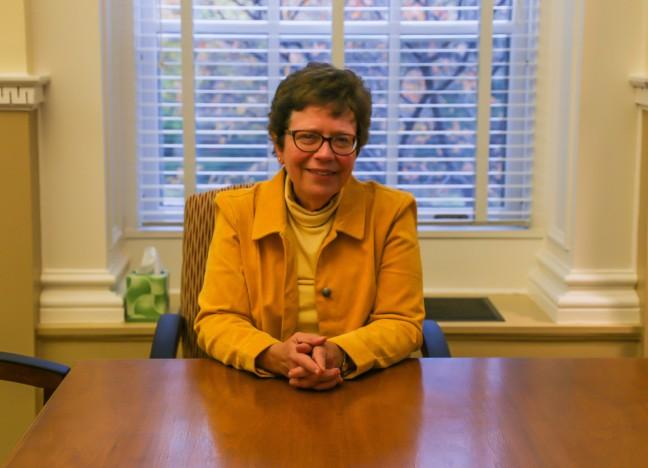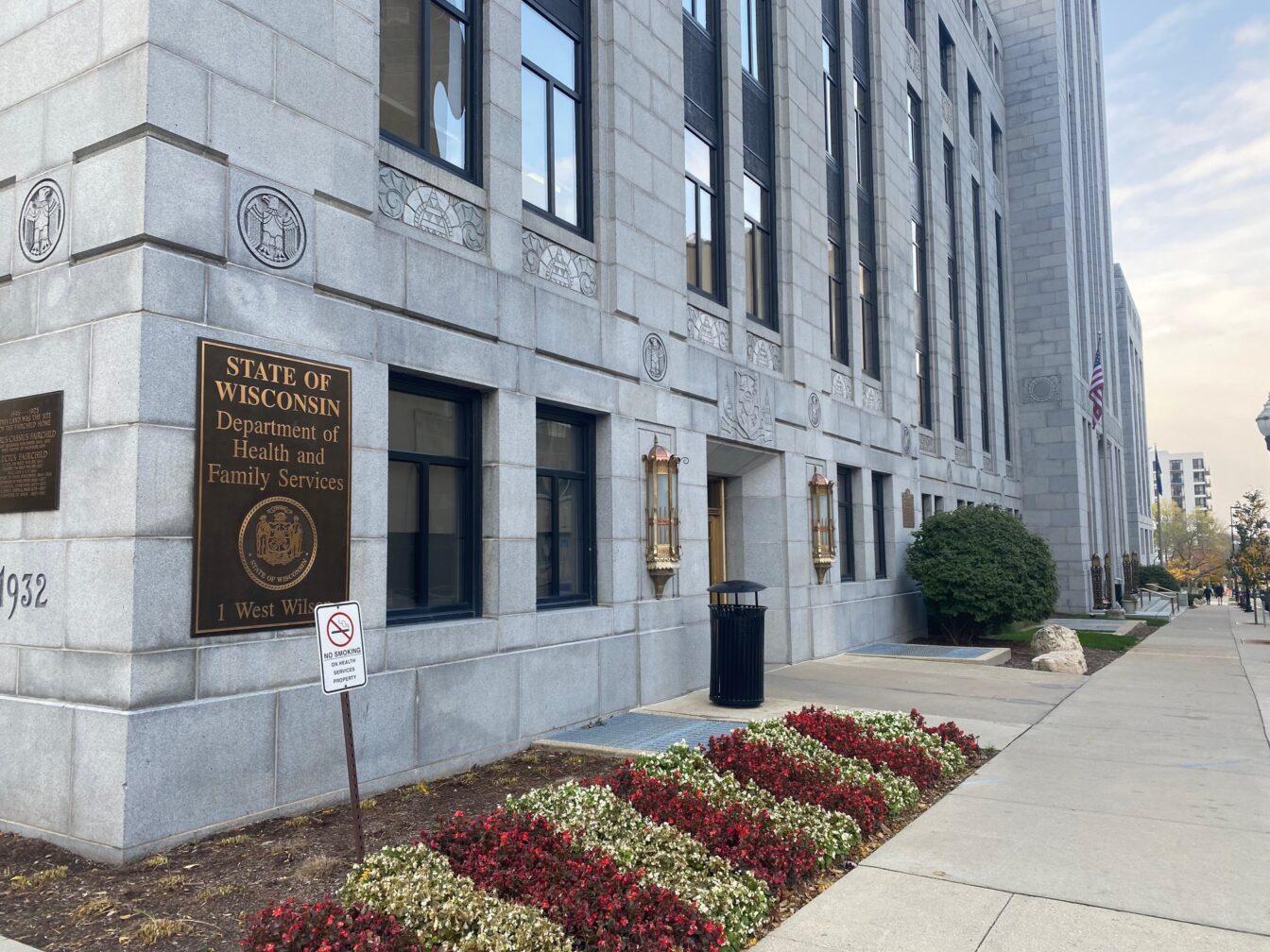University of Wisconsin Chancellor Rebecca Blank says she would not send her daughter to a college that allows concealed weapons in university buildings, and hopes to mobilize parents statewide to voice the same concerns to lawmakers.
“I’m the mother of a sophomore at Northwestern University,” Blank told The Badger Herald editors last week. “I wouldn’t send her to a school where she could end up in a dorm with someone with a gun in the room. I just wouldn’t do that.”
Given the routine news of campus shootings, Blank said she couldn’t be the only parent with safety concerns, particularly combined with the problems campuses have with large crowds and alcohol abuse. Parents’ voices will be critical, she said.
The proposal from Rep. Jesse Kremer, R-Kewaskum, isn’t public yet, but has drawn concerns from UW officials, professors and police. Blank said she was “absolutely opposed” to the forthcoming bill and said it “defied common sense.”
“I don’t think there’s anyone on a college campus that doesn’t look at those shootings and say, but for the grace of God, that could happen here at any moment,” Blank said.
Now well into her third year as chancellor, Blank sat down with The Badger Herald on Oct. 28 and addressed several topics, such as sexual assaults on campus, budget cuts to the university and what’s next for tenure at UW.
Transcript: The Badger Herald sits down with Chancellor Rebecca Blank, Lori Berquam
Protecting tenure
Blank defended actions the university and the UW System took in response to the removal of tenure from state statute. Some faculty members have been critical and suggested not enough was done to maintain those protections, but Blank said the Regents’ policies would be sufficient.
“You know, I’m not sure that putting this in regental statute gave us weaker tenure,” Blank said. “The problem was around the language that was adopted in the budget and our need to then write regulations around that language. I realize that others can disagree with that and there are some faculty who really believe that state statute was a much stronger protection but, I would say, [it] turned out not to be.”

UW has been crafting its own tenure policy, but UW System President Ray Cross said in a memo Thursday tenure proposals from UW campuses will not be considered until after the UW System has adopted a system-wide policy.
Despite expressing disappointment in an email released Thursday, Blank said there isn’t disagreement with the UW System on the process of crafting a tenure policy.
UW passed a tenure draft policy at Monday’s Faculty Senate meeting that will be need to be approved by the UW System’s Tenure Task Force. Once a UW System policy is in place, UW’s policy will be finalized.
Faculty Senate fixates on tenure, passes resolutions on concealed carry, fetal tissue
But Blank admits she had hoped the process around adopting a System-wide tenure policy would move faster.
“I would have loved to have this settled before we go fully into recruitment season here,” she said. “But these things take time to do well and I suspect it will take us into the late winter or early spring.”
Sexual assault
Among Blank’s top focuses this year has been reducing the amount of sexual assaults on campus. Data from the Association of American University’s Campus Climate Survey on Sexual Assault and Sexual Misconduct showed 27.6 percent of students experience sexual assault on campus.
Rejecting silence: Student survivors take control, speak out on sexual violence
With the increased dialogue surrounding the issue, Blank said the administration is taking a multifaceted approach to target UW’s drinking culture, the prevalence of assaults in fraternities and residence halls and individual perceptions and knowledge of consent.
“To make progress on this, we’ve got to talk about behavior change,” Blank said. “And whether that is abusive use of alcohol, which affects both the offenders and the victims, whether it is the view of sexuality and how you can take advantage of people in certain settings.”
Dean of Students Lori Berquam said there are plans to target Greek life and residence halls, where data showed sexual assaults occur more frequently. Berquam said dialogue on sexual assault needs to be continuous.
UW plans to further educate both students and staff in residence halls on how to react to situations both as they spiral and beforehand, Berquam said. She emphasized the importance of preventative action and bystander intervention, and the role of cultural awareness and sensitivity in addressing the climate of sexual assault.
“It’s not just in the instance or in the heat of the situation,” Berquam said. “That’s before that even gets there, to engage in conversations about how we treat each other with respect, how we’re able to communicate our needs, how we’re also able to confront each other and say, ‘hey, that is a degrading joke about women,’ or ‘that is racist’ or ‘that’s homophobic.’ All of that feeds into a climate of sexual violence, and that’s the systemic part of this that we want to have addressed.”

With a larger portion of sexual assaults occurring at fraternities, Berquam said she had been discussing ways the Greek system can mobilize to solve the problem. She said there have been several meetings led by the Greek community to discuss sexual assaults.
To target sexual assaults in residence halls, Berquam said the university plans to implement further training for residents and house fellows to make the community a net of support, with training in how to be advocates.
Out-of-state enrollment cap
In search for growth in enrollment, Blank successfully pushed for the removal of UW’s out-of-state enrollment cap. Critics have argued the move will allow more affluent out-of-state students while further increasing socioeconomic divides on campus, and that more emphasis should be placed on in-state recruitment.
Out-of-state student enrollment cap removal will transform UW into bougie playground
But Blank said the removal of the enrollment cap is a strategy that will allow the university to grow in a state at a time when fewer in-state high school graduates are applying to UW.
Blank also successfully advocated for an increase to out-of-state tuition. Because of the increase, she said it’s important to make sure resources like scholarships and financial aid grow to meet needs of low-income students.
Twenty-five percent of any tuition increase should go back into scholarship aid to guarantee tuition increases don’t shut off the flow of lower-income students, Blank said.
She argued increasing diversity on campus will involve increasing out-of-state students.
“Given what Wisconsin is and what Wisconsin looks like, a high share of our diversity comes from out-of-state,” Blank said. “We work hard at in-state diversity, but we have to attract out-of-state diversity if we want a Latino population here … One of the reasons why a little bit of expansion of out-of-state is good is it’s not just ethnic or racial diversity, but diversity in terms of experiences and where people come from increase diversity.”


















